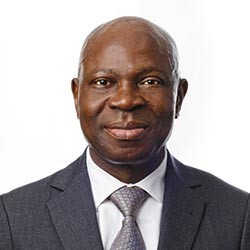UN Food Systems Summit: Statement in Carrying Forward the Vision and Momentum for 2030
IFAD Asset Request Portlet
Agrégateur de contenus
UN Food Systems Summit: Statement in Carrying Forward the Vision and Momentum for 2030
Où: Online
23 septembre 2021Excellencies,
Distinguished Delegates,
Colleagues,
Ladies and Gentlemen,
Let me first express my sincere thanks to UN Secretary-General Guterres for his foresight in calling this Summit.
I also thank Deputy-Secretary General Mohammed for her leadership in this whole process.
Thanks, also, to the Special Envoy Agnes Kalibata and her team for helping draw world attention to food systems issues. And, of course, our thanks to the many countries and participants in FSS dialogues. This includes poor rural producers, indigenous people and others who are critical to our food systems but continue to suffer from poverty and hunger.
Let us recall what is at stake. The Secretary-General called for this summit two years ago in recognition of how far the world was from achieving zero hunger, and amid rising climate change impacts and worsening food insecurity.
At least three billion people suffer undernourishment, nutrition deficiencies, or are overweight. And last year, the COVID-19 pandemic pushed an additional 88 to 115 million people into extreme poverty.
While progress on those fronts may be slow, that must not deter us from making the utmost effort for follow-up on this Summit and our delivery on the ground.
In fact, over the past two years we have made significant progress.
The FSS process has led not only to many fruitful dialogues, but the formation of new relationships and alliance to scale up investment, and impact.
Ladies and gentlemen,
Moving forward, success will partly depend on many things, and resources and bridging financing gaps is a major one.
We need to put forward new financing mechanisms to scale up resources at country level to support the national pathways.
Innovation will be essential in this area. We are convening the world’s public development banks in one month to discuss specifically what they can do. Another avenue that could be explored is the use of special drawing rights (SDRs) to support this transformation.
Success will also depend on making these transformations inclusive, especially for those who grow, process and distribute our food. Food systems have to work for the people who work in them.
This must be a truly collective effort. National pathways that address specific local contexts are critical. At the same time, global engagement and coordination are essential to galvanize and harmonize follow-up actions.
We must create synergies, rather than competition or new silos.
IFAD will continue to work with all partners to ensure that the world’s poorest and most marginalized people are not left behind. Transforming their lives will be the measure of our failure or success.
Thank you.
